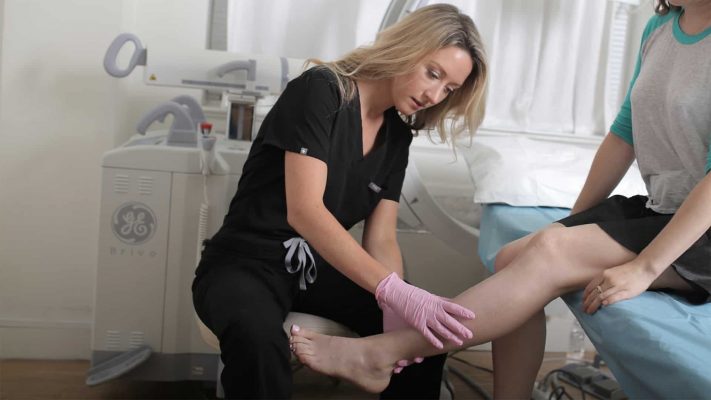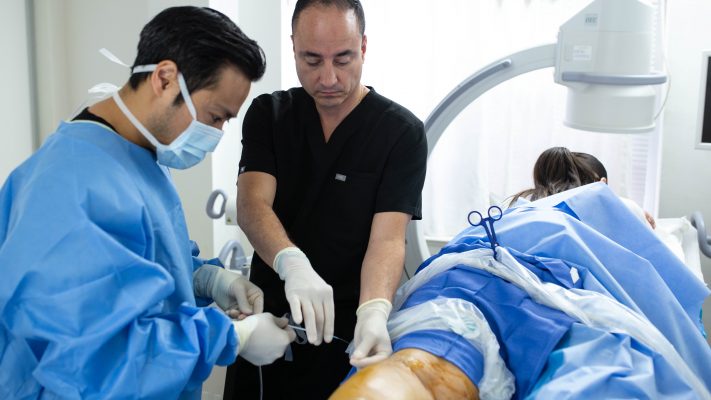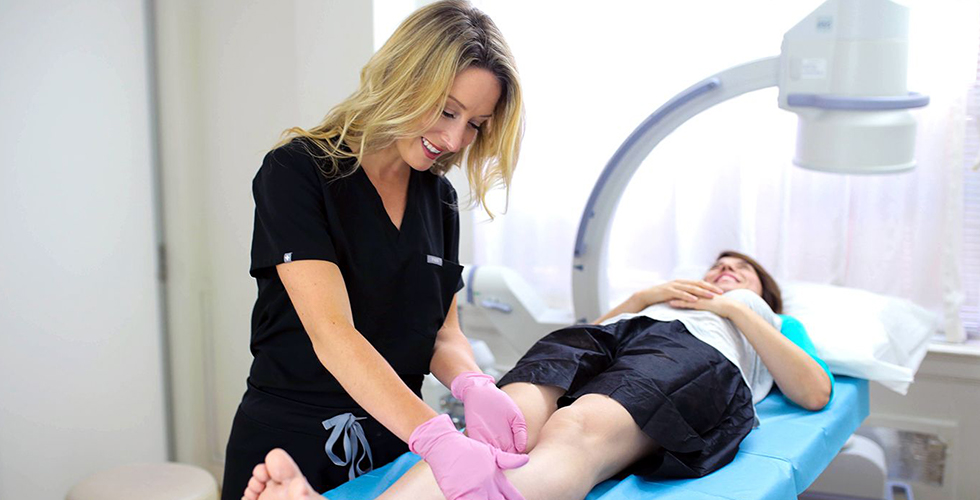Sclerotherapy with foam is a procedure that aims to eliminate varicose veins that are formed from the veins, usually in the legs and more often in women. This procedure occurs through the infiltration of a substance that causes the affected veins to collapse or dry, thus decreasing varicose veins. Do you want to know how sclerotherapy works? In the following article we explain how foam sclerotherapy is performed.

How sclerotherapy is performed with foam
The sclerotherapy solution consists in introducing chemical product into the diseased vein. Once it has been injected into the vein, the foam displaces the blood and comes in direct contact with the walls of the affected vessel, sealing or drying the dilated venous ducts, thus achieving desorption and subsequent disappearance, obtaining a greater effect with respect to other procedures.
It is used in thick varicose veins and medium-calibre varicose veins. Sclerotherapy recovery with foam achieves very good effects but at a lower cost compared to other methods, it can be applied directly to the vein or through Doppler ultrasound.
The laser vein treatment has only been indicated in more advanced cases, the rest sclerotherapy with foam has been shown as an effective, revolutionary and lower cost method for the treatment of varicose veins.
Side effects of sclerotherapy with foam
Despite being a procedure with very good results, there have been cases in which there are some sclerotherapy side effects, however they are not very significant, and among the most frequent we have:
- Inflammation (although it is very mild, can produce it).
- It can produce heat and discomfort at the injection site.
- Allergic reaction (to anaesthesia and to the injected solution).
- Bleeding during the process.
- Air bubbles.
- Blood clot (in some people it can occur in the vein that was injected and requires drainage).
In addition, sclerotherapy with foam is contraindicated in:
- Pregnant women.
- During breastfeeding
- People with allergies to sclerosing products
- People who are receiving treatment for cancer.
Complications of sclerotherapy with foam
Sclerotherapy with foam despite being a treatment with excellent results if done proper care after sclerotherapy, like many procedures can have complications , although they are not many but no less important and that is why we will mention it in the following section:
- Sclerotherapy with foam at vein clinics of America is used in varicose veins of large and medium calibre is not recommended in so-called spiders or telagientasias because they can produce blood clots which will require drainage and pigmentation, it is more frequent in this therapy than in pure, so In general, this hyper pigmentation is resolved by the sixth week of treatment.
- Under other conditions, a bruise may occur in the area of the injection, which resolves without requiring treatment.
- They can also appear telagientasias, in a very small percentage of people, who are small glasses of pink colour that manage to disappear at 6 months.
Source Article : http://varicoseveinscure.strikingly.com/blog/what-is-sclerotherapy-with-foam-and-what-is-its-effect

